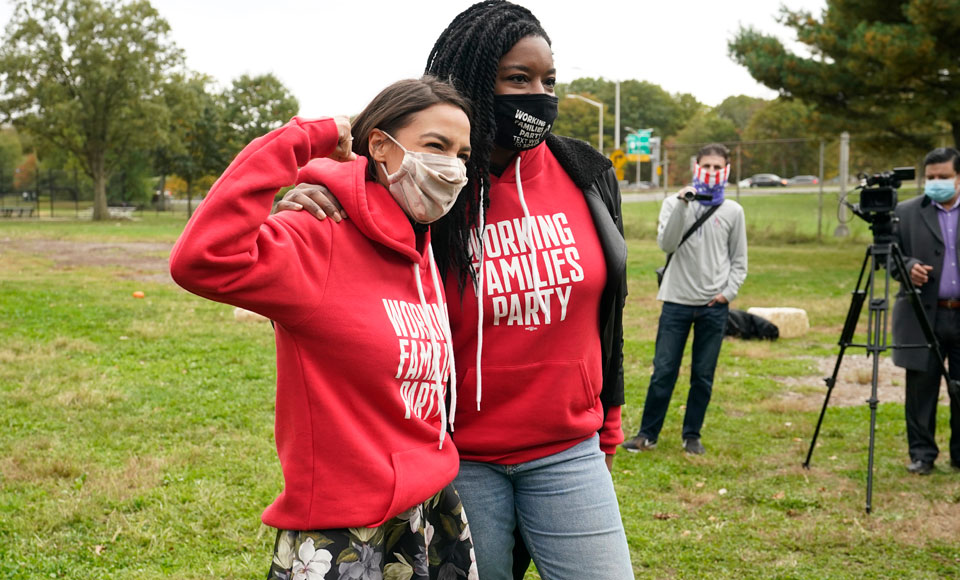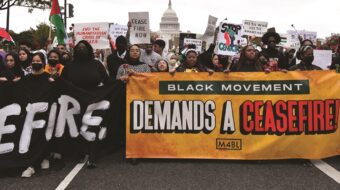
This is the second part of an analysis of the June 28 New York State primaries. Read part 1 here.
NEW YORK—The greatest two victories for the Working Families Party in the June 28 primaries were in Assembly Districts 92 and 103 in which progressive challengers defeated incumbents. In the Hudson Valley, the Democratic Socialists of America and Rep. Alexandria Ocasio-Cortez (NY-14–Queens and the Bronx) cross-endorsed Sarahana Shrestha. Shrestha was the WFP’s “We Can’t Wait” slate member furthest out of New York City.
Progressives and the local Democratic Party organization endorsed the Hudson Valley’s victorious MaryJane Shimsky. Moderate and corporate Democrats must be pondering these victories away from the City.

There were four open seats in which WFP-endorsed candidates ran. As Table 2 shows, three were cross-endorsed races by either the DSA, the New York Political Action Network, or Rep. Ocasio-Cortez. The highlight here was Juan Ardila. Backed also with significant labor support, he won a four-way race in District 37.
“We were speaking on a progressive message. We never went negative on anyone,” Ardila explained. “We only talked about the issues in terms of what we wanted to advocate for and what are the solutions to the problems that the people in the district are facing.” This might be a golden approach for building broad people’s coalitions.
District 65 also had four candidates, with progressive Illapa Sairitupac coming in second. Moderate Grace Lee won with 49%, but Sairitupac lost by only 1,254 votes. This race illustrates how critical a slightly increased voter turnout can sway a district’s political future. On the other hand, Chinatown is in the district, and racial and national representation cannot be underemphasized. Progressive lawmaker Yuh-Line Niou vacated the seat to run for Congress in August. Kellie Leeson, who finished fourth in a five-way race in District 73, had only three votes less than (and the same percentage as) the third-place candidate. In that race, Alex Bores won with only 29% and a margin of only 447 votes.

WFP-endorsed candidates challenged incumbents in 10 races but lost all of them. Six of these were “We Can’t Wait” slate members, all of which were cross-endorsed by Rep. Ocasio-Cortez and either DSA, NYPAN, or both. In District 54, Samy Nemir Olivares lost by only 190 votes, so close the Associated Press hesitated to call the race. In District 68, Wilfredo Lopez finished fourth in a four-way race in which the winner had only 37% of the vote.
The primary in District 43 was a rematch of a special election held just last March. The WFP-endorsed candidate, Jelanie Deshong, finished second to the short-tenured incumbent, Brian Cunningham.
Cunningham’s victory in March represented “a win for the Brooklyn Democratic Party against a group of progressive reformers” critical of the borough’s party leadership. NYPAN endorsed Cunningham, making this four-way race the only instance in which the WFP and NYPAN disagreed on who to support.
“Unity across different organizations on the left is essential if we want to win in August and beyond,” New York WFP Deputy Director Sharon Cromwell told People’s World. “We’re proud to have partnered with DSA on Sarahana [Shrestha’s] race and several other races this cycle. Juan [Ardlia’s] campaign aligned community and tenant organizations, labor unions, and the WFP. As we look to August’s congressional and State Senate races, it will be important for us to coalesce early and work closely together to elevate our progressive champions,” she explained.

On the positive side, in ten races, WFP-endorsed incumbents defeated primary challengers. All of these districts are in New York City. In the cases of Assembly Members Ron Kim (District 40), Emily Gallagher (50), Marcela Mitaynes (51), Souffrant Forrest (57), and Amanda Septimo (84), the challengers were from older political machine families and/or well-funded by “massive crypto and real estate money tilting the playing field,” as the WFP described it.
“I think real estate decided and made an effort to push back as much as they wanted to… to defend their institutions,” said Camille Rivera of New Deal Strategies, a progressive consulting firm.
In some races the margins of victory were massive. In others, challengers could have flipped seats via slight increases in turnout. These races are reminders that moderate or conservative Democrats are not moping around after progressives capture seats.
“A number of our progressive state legislators faced primary challenges from the right and every single one of them were soundly reelected,” Cromwell told People’s World.”
In four races, there were cross endorsements, once again displaying left and progressive unity. Unions and elected officials endorsed these candidates, due to their incumbencies. In some cases, there was tremendous union backing. This illustrates the importance of institutional assistance.

There were four instances of WFP-endorsed candidates who were not in Democratic Party primaries and who live in Republican-held Assembly districts. As Table 5 shows, President Joe Biden won only one of these districts and disgraced former President Trump won the others by toss-up or near-toss-up margins. (The Biden-Trump vote percentages are according to the new district lines.) Flipping one or more of these seats in November will require hard work by the people’s movements. Any one victory will strike a blow to the state’s GOP.

In 34 Assembly districts, the WFP endorsed the Democratic Party incumbent who did not face a primary challenge. Three of them were cross-endorsed by either NYPAN or DSA.
Four of the WFP-endorsed incumbents are in competitive or nearly competitive districts. Meaning Biden’s margin of victory in 2020 was ten points or less. These four incumbents will predictably have a tougher time in their re-elections. Thus, trade unions, democratic movements, and progressives might want to concentrate at least some of their resources in these areas in order to hold the seats.

In the remaining 30 districts, voters decisively went for Biden against Trump in 2020. With such voting patterns, all of these seats should be safe despite the predicted Republican advantage of this mid-term election cycle. Of course, some of the campaigns have Biden margins close enough to not take victory for granted.
These are tactically difficult times. As Nnaemeka has told WFP supporters, the WFP, as well as the larger progressive family, this writer adds, must communicate its priority issues. Progressives must build relationships while still being adversarial on key issues. It is sometimes a tightrope that must be walked.












Comments